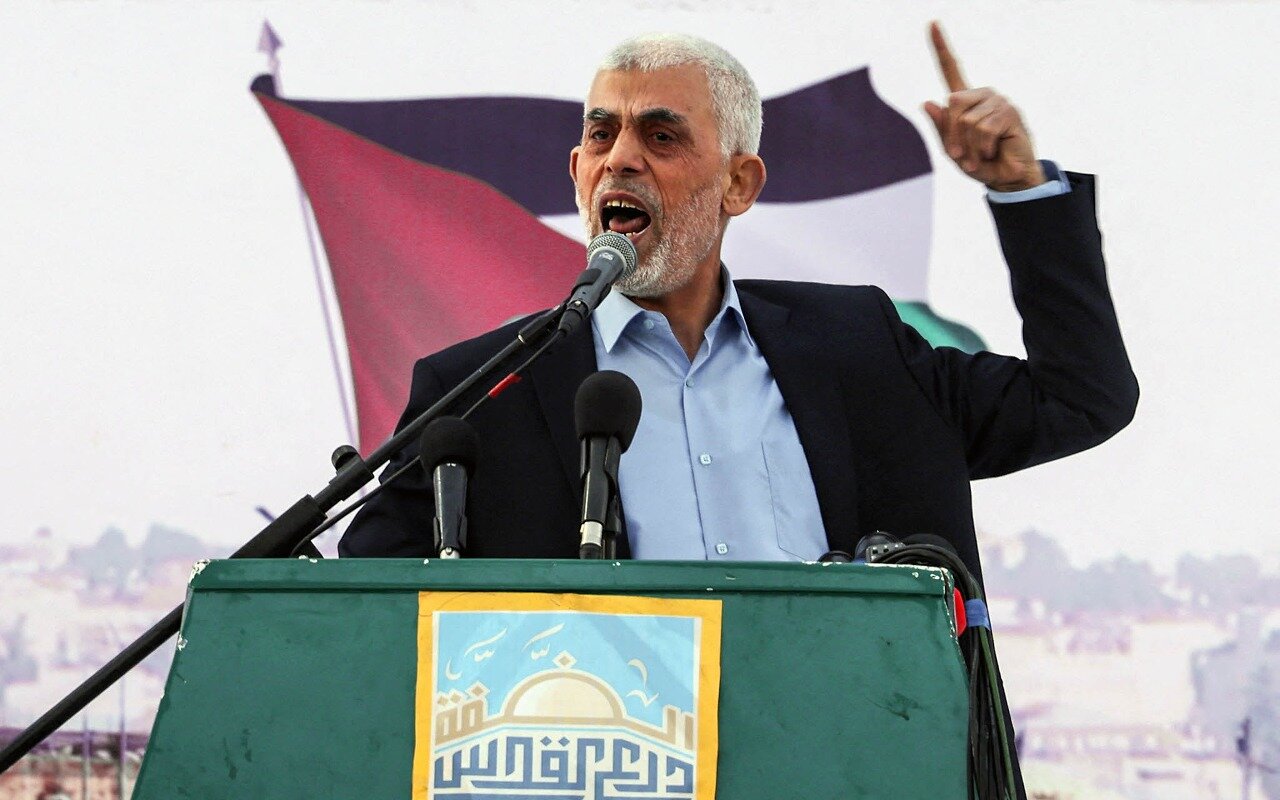Who is Yahya Sinwar, the fluent Hebrew speaker?
From Israeli prison life to al-Aqsa Storm

TEHRAN - Yahya Sinwar is originally from the coastal city of Askalan, in what is current day Ashkelon following the establishment of Israel in 1948.
Like hundreds of thousands of others, his parents were forced to leave their homes to make way for foreign settlers to occupy Palestinians' houses, streets, neighborhoods, towns, and cities.
As a result, Sinwar was born in the Khan Younis refugee camp in the Gaza Strip.
He was a strong political activist in the Palestinian struggle for statehood and national identity in his early years.
Being seen as a thorn in the eyes of Israeli invaders who responded against Palestinian activists with an iron fist, Sinwar was arrested in 1982, serving time behind bars in an Israeli jail at the age of 19.
Following his freedom from his first prison sentence of several months, Sinwar emerged more determined to expand his political activism, which he conducted by enlarging his circle of fellow activists seeking a Palestinian state.
Three years later, Israeli authorities arrested him for a second time in 1985. His second prison sentence also lasted months, but this time he met an influential inmate by the name of Sheikh Ahmad Yassin, the founder of the Hamas resistance movement.
Later in 1985, upon his release from Israeli jail, Sinwar began his journey in politics and armed resistance by co-founding an organization called al-Majd, which would later merge into Hamas.
Sinwar spent his time with al-Majd seeking out Palestinian agents on the payroll of Tel Aviv in the Gaza Strip and punishing them for their espionage activities for Israel.
This made Gaza safer and more important for the Palestinians.
At the age of 25, the Israelis arrested Sinwar for a third time and on this occasion, in 1988, he was sentenced to life in prison for allegedly orchestrating the abduction of four Palestinians in Gaza, who were essentially traitors working for Tel Aviv.
Israeli authorities also accused Sinwar of being behind a plan for a resistance operation that allegedly left two Israeli soldiers dead.
He was later given four life sentences and spent 22 years in prison.
During his lengthy time in prison, Sinwar closely watched developments in Palestine, the region, and beyond. He spent much of his time studying behind bars.
Among the many fields he studied in jail was the Hebrew language, which he can speak fluently and would later give interviews in Hebrew, something that also helped him better understand the Israeli thinking upon his release from prison in 2011.
Sinwar was freed along with 1,026 other Palestinian political prisoners in a 2011 prisoner exchange deal for Israeli soldier Gilad Shalit.
Shalit was taken captive by Hamas in 2006.
Upon his release, Sinwar quickly rose in the ranks of Hamas and worked on freeing other Palestinians in Israeli prisons.
By 2017, he was appointed the leader of Hamas in the Gaza Strip.
In 2018, Sinwar led the Great March of Return rallies that were held on a weekly basis in the Gaza Strip in a bid to peacefully break the siege on the enclave.
But the Israeli military responded to the rallies with brutal force. Snipers shot at tens of thousands of peaceful protesters, killing many and disabling thousands of others for life.
After the bloody suppression of the Great March of Return, the only remaining possible way for Sinwar was to push for resistance with stronger determination and pursue the same approach that led to his freedom from Israeli jails: Israelis had to be taken captive and released in exchange for the freedom of Palestinian prisoners.
Sinwar planned carefully alongside other Hamas leaders.
“We will come to you, God willing, in a roaring storm. We will come to you with endless rockets, we will come to you in a limitless storm of soldiers, we will come to you with millions of our people, like the repeating tide,” Sinwar, then President of Hamas in the Gaza Strip, said in an address on December 14, 2022.
After a year of planning, Hamas waged Operation al-Aqsa Storm on October 7, 2023. The operation was a major intelligence and security failure for the Israelis, their military generals and their Prime Minister Benjamin Netanyahu.
Tel Aviv went on to wage a genocidal war on the Gaza Strip with one of the official goals being a total destruction of Hamas.
However, until today (ten months since the war began), that goal has not been realized.
Despite killing and injuring tens of thousands of people, mostly women and children, there is growing global consensus among military experts that the Israeli occupation forces have been defeated in Gaza and are stuck in a hole that they cannot escape from.
Hamas is far from defeated. And making matters worse for Tel Aviv, the resistance movement has announced Sinwar as the replacement for Ismail Haniyeh, who was assassinated in Tehran last week.
In a statement late on Tuesday, Hamas said, “After in-depth and extensive consultations and deliberations in our leadership institutions, brother leader Yahya Sinwar was chosen as head of the political bureau”.
The statement will be seen as a major blow and another defeat for Netanyahu and his cabinet.
For Sinwar this is just another level in what has been a long journey in his battle and resistance against the Israeli occupation.
Leave a Comment